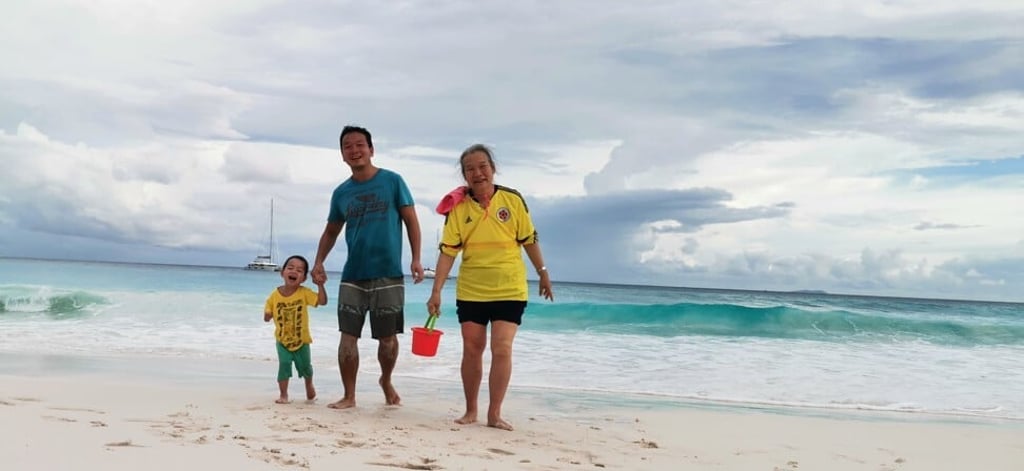Coronavirus: Chinese family stranded in Seychelles paradise become social media stars as their lockdown story goes viral
- After flights were grounded because of Covid-19, Beijinger Rex Yang and his family were left stuck in the Indian Ocean paradise of the Seychelles
- Yang’s daily video diary of his family’s exploits has been a hit on social media in China, and is helping promote the holiday destination

When Beijinger Rex Yang arrived in the Seychelles in late January, he did not expect a planned two-week family holiday would stretch to three months with no end in sight.
The Yang family is still stranded on the island of La Digue, the third-largest in the Seychelles archipelago in the Indian Ocean off East Africa. The family’s stay was originally extended because Yang’s mother was unwell, and then further prolonged because the Seychelles’ international airport was shut down as a result of the coronavirus pandemic.
Before the virus crisis took hold, the 33-year-old, his mother, sister and nephew enjoyed La Digue’s balmy weather, lush forest and pristine beaches.
“We woke at 7.30am. We cooked and ate breakfast,” Yang says. “Afterwards, the whole family would spend two hours at the beach, feeding Aldabra giant tortoises and enjoying the waves. After a siesta, we would hit the beach again and enjoy the beautiful sunset over the Indian Ocean.”

Then, on March 14, the first Covid-19 case was reported in the Seychelles. To stem the outbreak, the government quickly put social distancing measures in place, closed schools and shops selling non-essential goods, and banned foreigners from entering and leaving the country.
Beaches have been closed since the beginning of April, which has been frustrating for the Yangs, but they have made the most of their confinement in a 200 square metre (2,150 square foot), two-storey holiday home with a lawn and sand patch.